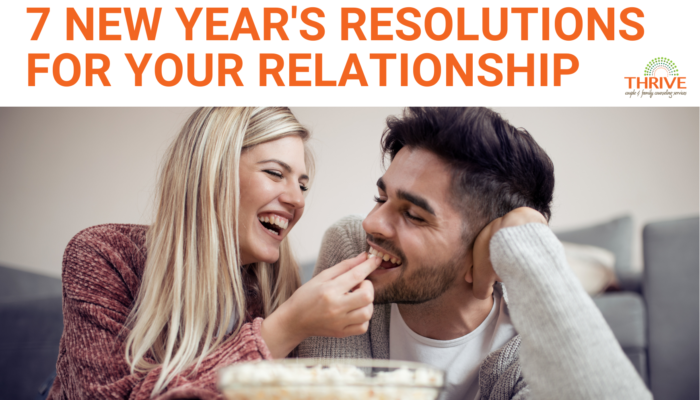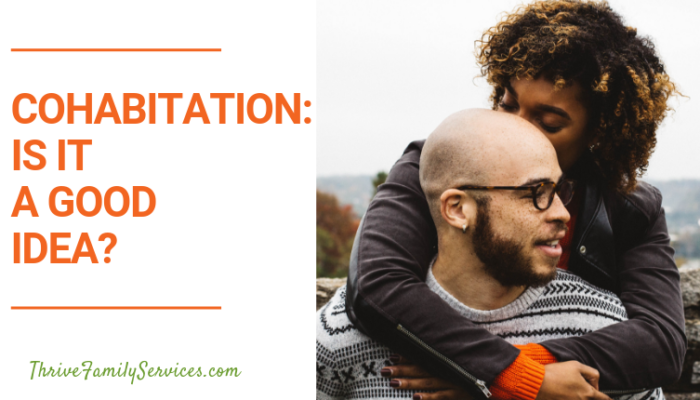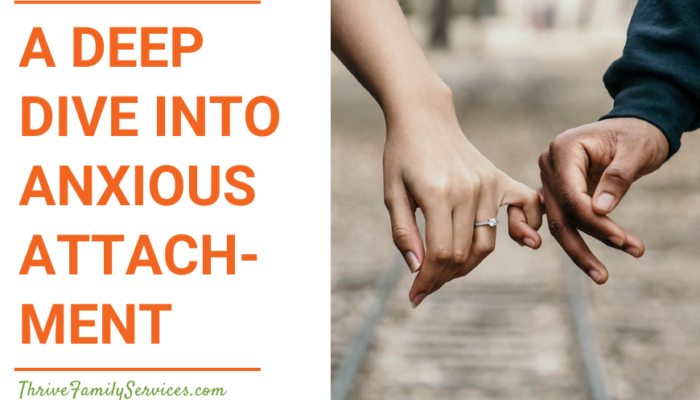January isn’t the only time of year when it’s possible to make goals and reflect on accomplishments, but it’s a popular one for a lot of reasons. It’s common for people to take stock of the previous year as we move to the new one and to make goals or New Year’s resolutions to guide the upcoming 12 months. The start of the year can be a great time to set goals and come up with resolutions for all aspects of your life, including in your relationships. As Emotionally Focused Couples Therapists, we have seen thousands of couples use Emotionally Focused Therapy to heal relationship problems, improve communication, and grow closer.
Emotionally Focused Therapy repairs the negative cycle that most couples experience.
A negative cycle is a repeated pattern in a relationship that leaves you and your partner in a bad place relationally. When you’re in the middle of a negative pattern, especially in your romantic relationship, it can be hard to spot what’s going on by yourself in the moment. You might just know that the way you’re relating to one another doesn’t feel good, or you may be concerned that you’re growing apart.
The first step to repairing the sense of disconnection that you feel in your relationship is to recognize the negative cycle. Every relationship is different, so each negative cycle will be different too. That’s why it’s so important to focus on your relationship and your partner, and not what anyone else is doing.
New Year’s resolutions have a bit of a bad rap, sometimes because they end up making people feel bad instead of creating positive change.
Good “resolutions” shouldn’t come from a place of shame or insecurity. For example, you don’t want to shame yourself or your relationship by saying “I suck at this” or “Our relationship must not be meant to be.”
Shame isn’t a very good motivator. Has anyone ever tried to shame you into doing something differently? It probably didn’t feel great. Shame might be enough to get you through your goals in the first few months of the year, but how long can you stand being mean to yourself? At some point, shame stops working and you’re back to square one. Instead, when new year’s resolutions come from a place of compassion and acceptance, they’re going to be easier to stick with in the long run.
Instead, use a Growth Mindset around your relationships. Relationships require work for all of us, and all of us can struggle with messy moments and stuck places. We are all also capable of learning, growing, and changing our relationships.
Instead of focusing on unsustainable relationship goals or resolutions this year, try these 7 goals to improve your relationship:
Goal 1: Resolve to practice differentiating between what is being said and your interpretation of it
Sometimes, communicating with your partner is hard. When we are involved in intimate relationships, we often feel vulnerable and that can cause us to be defensive or jumping to conclusions. This is a normal way our brain processes information and makes meaning. Meaning making can happen incredibly fast in your most important relationships. That’s why it’s crucial to slow down and learn how to differentiate between the meaning you are making and what’s actually being said.
Is there something that’s triggering an old wound or an unmet need that is causing you to react in a certain way? It can be helpful to try to distinguish between what’s actually going on and how you’re interpreting it. Everyone interprets things in their own way, it’s how our brains work. However, when you let yourself pause and notice the differences between what’s going on and how you’re making sense of it, you give yourself a chance to react in a healthier way.
Goal 2: Resolve to resist the urge to make each other the “bad guy”
Remind yourselves in tough moments that it’s the two of you versus the problem, not the two of you versus each other. In Emotionally Focused Couples Therapy, we look for the negative cycle in your relationship. There’s always a reason behind what’s going on, and sometimes it takes the help of a professional to uncover what’s really going on.
The negative cycle is the cause of the problems you’re experiencing, not either one of you individually. When you can shift your thinking from you and your partner working against each other to you and your partner working against the negative cycle, it becomes easier to treat each other with compassion.
Goal 3: Resolve to look for ways you’re contributing to the negative cycle in your relationship
Every relationship has a negative cycle, and each partner contributes to it. It’s part of being in relationships with other people – we learn how to relate to one another in certain ways and then they become a pattern. You’re not bad for having a negative cycle in your relationship, and it doesn’t mean that your relationship is unhealthy. It just means that there’s a disconnect with how you’re relating to one another and you need support to find where that disconnect is.
Part of working through the negative cycle is owning your part in it. Is there something that you’re doing that makes the disconnect in your relationship worse? What are the reasons behind what you do? There’s always a reason behind our behavior, even if we don’t understand it consciously. Working with a therapist can help you pinpoint your role in the negative cycle so you can change it.
Goal 4: Resolve to explore your own wants and needs
It’s impossible to ask for what you want when you don’t know what that is. In EFT, we work with couples to feel comfortable asking for what they want and need. To do that, you need to know what to ask for! It may be helpful to understand some things about yourself here, like your attachment style. The more you know about yourself and why you respond to things the way you do, the easier it will be to interrupt those responses in the future.
It’s also a good idea to explore how your wants and needs change over time. We all change, and sometimes our wants and needs change along with us, so it’s helpful to check in regularly and see if there’s anything new you want to address. Practicing asking for what you need is an important part of couples therapy.
Goal 5: Resolve to practice showing acceptance and compassion for one another
Acceptance and compassion are essential to relationships. When we don’t feel accepted or cared about by our partners, it feels terrible. As you work on relating to one another differently, make a concerted effort to show each other compassion and acceptance.
Goal 6: Resolve to stop comparing your relationship to anyone else’s
Sometimes, new year’s resolutions can be a source of unrealistic expectations or insecurity. It’s especially hard to tune out what other people are doing when we have such an intimate look into people’s lives via social media. While logically we all know that what we’re seeing is someone else’s highlight reel, it’s hard to remember that in the moment before you get caught up in comparison. It might seem like everyone you follow has a perfect relationship, but you’re not seeing the ins and outs of their everyday relationship.
Goal 7: Resolve to not to let problems build up
Address issues in your relationship as they come up, instead of holding onto resentment and hurt feelings. Your partner can’t read your mind, so communication is essential. It can be intimidating to communicate openly after spending a long time not communicating, but it gets easier with practice. It might also be helpful to have a regular check in with your partner so you have a set time to discuss anything that’s coming up. This way you don’t have to hold on to things for so long that you explode with resentment.




